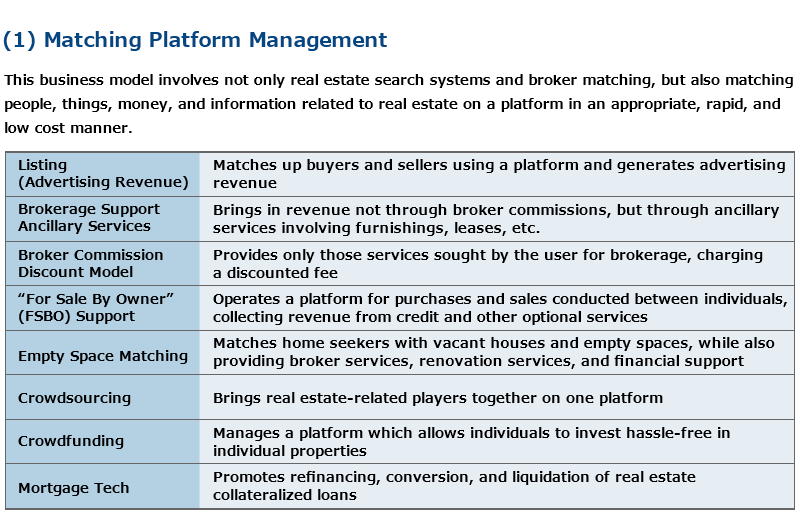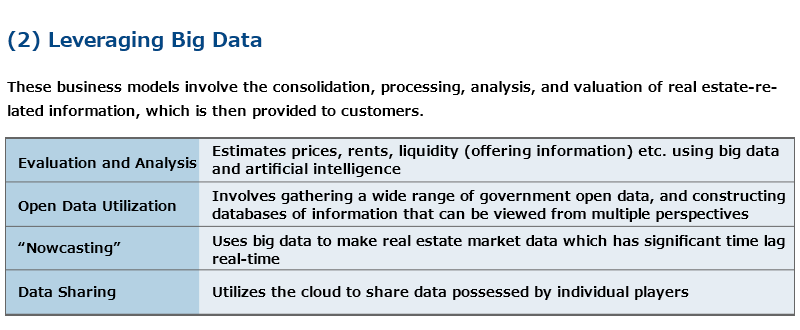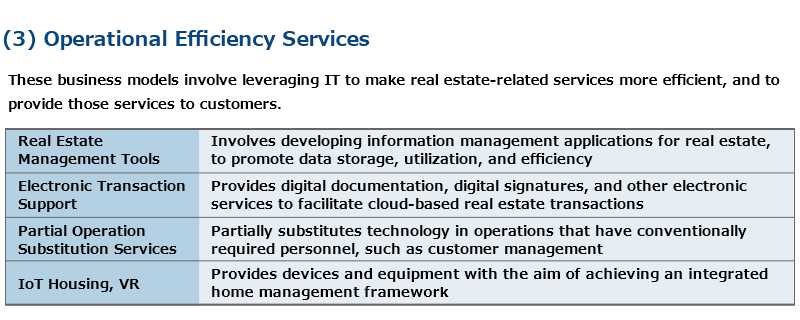“Real Estate Tech” Will Change Conventional Wisdom About Housing
#Innovation
Dec. 15, 2016
The real estate industry has been something of a latecomer to the digital revolution. But new services leveraging data analysis and IT are now emerging. This could make it easier to think about housing.
Data and technology come to the real estate industry
The world of real estate is regarded as being conservative and opaque. In today’s Japan, even those who are looking to sell their house will find it is not so easy to accomplish. Nevertheless, thanks to technological advances and the ability to analyze vast amounts of data these days, new services are emerging to lower these kinds of hurdles. This trend, known as “Real Estate Tech”, could make enough of a splash to change the conventional wisdom about housing.
Determinations based not on intuition or experience, but on a wealth of data
Using new technologies and analytical models, Real Estate Tech services—much like FinTech—began attracting notice five to six years ago in the real estate sector overseas, especially in the U.S. “In Japan, between the end of 2014 and 2015, over 10 startups successively launched new services,” NRI’s Tomohiko Taniyama added. Taniyama, a specialist of finance theory in the real estate field, has spent over 10 years in the course of his work looking at data on the Japanese real estate market.
“Japanese real estate companies have people who are sort of masters at driving the market and properties based on their intuition and experience,” Taniyama says. “However, what I believe the Japanese real estate industry needs now is a system for using data and algorithms to show what’s happening the market in a comprehensible way, and for making decisions based on the data.”
Knowing the value of your home in real time
Real Estate Tech services include a variety of models, ranging from individual housing sales and rentals to real estate development, financing, and business management (see tables*). The introduction of new technologies into these areas holds the potential for an even greater impact in terms of convenience and comfortability. Taniyama offers housing price assessments as an example.
“We’re seeing services emerge that display prices for all types of real estate—including apartments and single-family homes—online and in real time. These services became possible because we are now able to collect and analyze all kinds of data that affect the real estate market, including the price of neighboring land, ground information, demographic movements, and satellite images. I believe the impact of these services will change the individual person’s awareness with regard to housing, as well as invigorate the secondhand real estate market.”
Table: Business Model Types for Key Real Estate Tech Companies



Checking the best time to sell your house, on your own
In Japan, once you have bought a house, it is difficult to know its market value without asking for an assessment by a real estate brokerage. However, if it were possible to check the price of your home at any time, you could judge whether selling now would leave you with excess liabilities as measured against your home loan balance, or would produce a gain on the sale.
“This means that those who have never considered selling their home up to that point could think about relocating to a new home without having to rely on brokers. These services would enable you to think more freely about taking care of your own needs, when it comes to your house and lifestyle.”
Stimulating the second-hand housing market
The traditional real estate world is characterized by a number of practices that would be considered antiquated. For instance, take the confining of a property where a single broker aims to conduct a dual-agency deal where he or she charges a commission from both the seller and the buyer. There are fixed broker fees across the board. The provider has exclusive possession of the real estate information. And there are also the murky construction costs and unspecified price statements that often appear in cases of renovation work. Taniyama believes that these kinds of industry-favoring practices will give way due to the progress of Real Estate Tech, and will cause the industry to undergo major structural changes.
“This doesn’t necessarily mean that current real estate businesses will end up losing their market share. The new services that are hitting the scene will most likely give the real estate market a shot in the arm, and in fact lead the market to grow.”
The circulation of second-hand housing is a social challenge for Japan going forward. There is reason to hope that Real Estate Tech—with its ability to make wider use of and circulate information—can meet this challenge.







